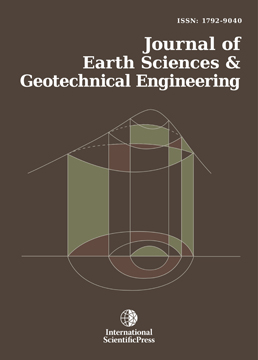Journal of Earth Sciences and Geotechnical Engineering
Assessment of Chemical Quality of Water from Shallow Alluvial Aquifers in and around Badeggi, Central Bida Basin, Nigeria
-
 [ Download ]
[ Download ]
- Times downloaded: 10619
-
Abstract
The chemical composition of water from shallow alluvial aquifers on the River Gbako flood plain, Badeggi, Central Bida Basin, Nigeria has been investigated with the aim of assessing the impact of intensive agricultural activity on the chemical quality of groundwater; the main source of potable water in the area. A total of 23 samples made up of eighteen (18) from hand dug wells, two (2) from boreholes, two (2) river water and one (1) from a spring were collected. Analyses for major cations and anions were conducted at the National Cereals Research Institute (NCRI) Badeggi, Nigeria using standard water analyses procedures. The results show cations concentrations are within drinking water limits set by the World Health Organization and Nigerian Standard for Drinking Water Quality. The order of abundance of cations is Ca>Na>K>Mg. The concentration of most anions are within acceptable limits, except for phosphate, nitrate and sulphate whose elevated levels in the water may be an indication of the impact of intensive fertilizer application on water chemistry. Two hydrochemical facies, namely, Ca (HCO-3) type and Na (HCO-3) were recognized. Overall, the water of quality in Badeggi and its environs has not been adversely affected by anthropogenic factors. However, continued monitoring is recommended as a means of protecting these flood plain aquifers from potential contamination.
